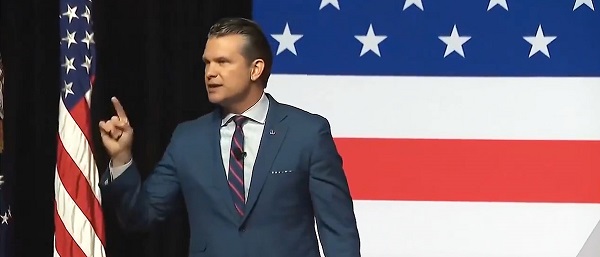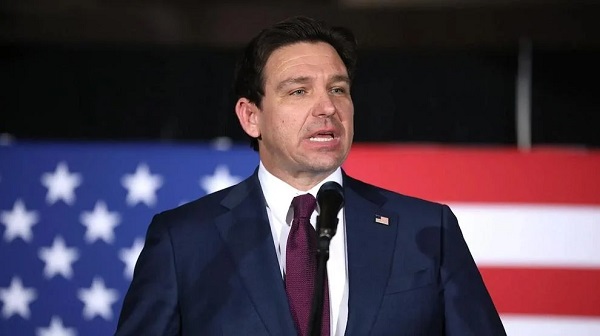Opinion
A rural response to Gerald Stanley’s acquittal from a Saskatchewan farmer..

As a person who lives on a farm in rural sask. I can offer the following insights into rural realities. I only speak for myself and my family. I don’t claim to know what I would or wouldn’t do if I was in the Stanley’s situation, nor if I was in that vehicle with Colton. I hope I never have to find out. I don’t know what life is like on farms in other places, I can’t speak to that.
I can only offer what knowledge I have of rural life…
1. If you live on a farm you are responsible for everything yourself. Snow removal, garbage disposal, water, sewer, security and safety. If your house starts on fire it’s very unlikely that the FD will arrive in time to save it. If you have a heart attack it’s very unlikely that the EMTs will arrive in time to save you. And if your family is attacked it is very unlikely that the RCMP will arrive in time to save you. You are basically on your own. I don’t feel that to say that the Stanleys could have locked themselves in the house and called the police is very reasonable. They weren’t in the house, they were all over the yard. Maybe their door didn’t even lock. Had they been in the house already they may have just hid there like their neighbor did. We can’t know either way. And where I live the earliest RCMP response would be greater than 30 mins. A lot can happen in 30 mins.
2.Anyone who enters a farmer’s property with the intent to steal from or threaten the occupants should be aware of the likely presence of weapons. All of the farmers I know have guns. More than one. Some have many. They aren’t solely or primarily for protection from would be thieves or attackers. some people collect guns, some people enjoy target shooting or hunting. On a farm it is pretty much necessary to have a gun. Where we live there are coyotes, raccoons, cougars, wolves, wild boars etc. An aggressive or rabid animal can attack your family dogs or a beloved animal may be injured or sick and need your mercy. It’s just a rural reality. But a gun can kill people just as easily as animals so everyone should just be aware that on farms there are usually guns.
3. The reasons farmers are easy targets for crime are the very same reasons they are often forced to deal with it on their own. Essentially no effective police response and isolation.
I don’t live in an area with a lot of rural crime. We’ve been robbed before and neighbors have had vehicles stolen and equipment vandalized but I would not say it’s a regular occurrence. Regardless, I have fears. I fear that this far from town someone will get injured or have a heart attack so I have our land location written by the phone and I took CPR. I fear that a snowstorm will take out our power and block our roads so we have a genset and snow moving equipment. I fear that our sewer will back up so we have an alarm and an extra pump. And I fear that if someone came into my yard with the intent or ‘the perceived intent’ to hurt my family the police would be of no help. So we have dogs, and locks on all our doors. And guns. And when guns get involved people can get hurt or killed. My point is we have to take extra precautions for things that urban people are comfortable letting ‘the professionals’ handle. Most farmers, most men actually, will do what they feel is necessary to protect their families and deal with the consequences later. No one wants to be in that position but when you live on a farm you are. You can not depend on anyone else to protect you or save you.
When people are intoxicated their judgement is impaired and they do not act or react in a predictable way. And it is safe to say when people are scared their judgement is impaired and they do not act or react in a predictable way. It’s very unfortunate that this tragedy happened at all and I feel terribly sad for all involved.
Regan from Saskatchewan
Daily Caller
Hegseth Planning Huge Shakeup Of Top Military Command: REPORT


From the Daily Caller News Foundation
War Secretary Pete Hegseth is moving forward with a massive shakeup of military leadership, restructuring top commands and moving the U.S. focus away from Europe and the Middle East, according to a report out Monday.
Five sources with knowledge of the matter told The Washington Post the Pentagon is set to consolidate U.S. Central Command in the Middle East, U.S. European Command and U.S. Africa Command into a new larger combatant command, the U.S. International Command. Other commands would be similarly consolidated, reducing the total number of combatant commands from 11 to eight. The intended restructuring is designed both to reduce the number of admirals and four star generals and refocus the U.S. military on the Indo-Pacific and Western Hemisphere, according to the sources.
The plan would be one of the most significant changes to the military’s upper echelons in decades, and the move would bring the Pentagon more directly in line with the administration’s refocusing of priorities in the recently released National Security Strategy.
Dear Readers:
As a nonprofit, we are dependent on the generosity of our readers.
Please consider making a small donation of any amount here.
Thank you!
“As a matter of Department of War policy, we will not comment on leaked documents that we cannot authenticate and rumored internal discussions, as well as specifics of architectural discussion or pre-decisional matters,” a War Department official told the Daily Caller News Foundation. “Beyond this, any insinuation there is a divide within the Department is completely false – everyone in the Department is working to achieve the same goal under this administration.”
The Post also reports the proposal was crafted under supervision by Chairman of the Joint Chiefs of Staff Gen. Dan Caine, at Hegseth’s request. Caine will also be sharing two alternate proposals on potential restructures.
Hegseth has been looking for ways to reduce the number of four star generals in the Armed Forces, which has roughly the same amount of generals now as during World War II.
Daily Caller
Paris Climate Deal Now Decade-Old Disaster


From the Daily Caller News Foundation
By Steve Milloy
The Paris Climate Accord was adopted 10 years ago this week. It’s been a decade of disaster that President Donald Trump is rightly trying again to end.
The stated purpose of the agreement was for countries to voluntarily cut emissions to avoid the average global temperature exceeding the (guessed at) pre-industrial temperature by 3.6°F (2°C) and preferably 2.7°F (1.5°C).
Since December 2015, the world spent an estimated $10 trillion trying to achieve the Paris goals. What has been accomplished? Instead of reducing global emissions, they have increased about 12 percent. While the increase in emissions is actually a good thing for the environment and humanity, spending $10 trillion in a failed effort to cut emissions just underscores the agreement’s waste, fraud and abuse.
As a nonprofit, we are dependent on the generosity of our readers.
Please consider making a small donation of any amount here.
Thank you!
But wasting $10 trillion is only the tip of the iceberg.
The effort to cut emissions was largely based on forcing industrial countries to replace their tried-and-true fossil fuel-based energy systems with not-ready-for-prime-time wind, solar and battery-based systems. This forced transition has driven up energy costs and made energy systems less reliable. The result of that has been economy-crippling deindustrialization in former powerhouses of Germany and Britain.
And it gets worse.
European nations imagined they could reduce their carbon footprint by outsourcing their coal and natural gas needs to Russia. That outsourcing enriched Russia and made the European economy dependent on Russia for energy. That vulnerability, in turn, and a weak President Joe Biden encouraged Vladimir Putin to invade Ukraine.
The result of that has been more than one million killed and wounded, the mass destruction of Ukraine worth more than $500 billion so far and the inestimable cost of global destabilization. Europe will have to spend hundreds of billions more on defense, and U.S. taxpayers have been forced to spend hundreds of billions on arms for Ukraine. Putin has even raised the specter of using nuclear weapons.
President Barack Obama unconstitutionally tried to impose the Paris agreement on the U.S. as an Executive agreement rather than a treaty ratified by the U.S. Senate. Although Trump terminated the Executive agreement during his first administration, President Joe Biden rejoined the agreement soon after taking office, pledging to double Obama’s emissions cuts pledge to 50 percent below 2005 levels by 2030.
Biden’s emissions pledge was an impetus for the 2022 Inflation Reduction Act that allocated $1.2 trillion in spending for what Trump labeled as the Green New Scam. Although Trump’s One Big Beautiful Bill Act reduced that spending by about $500 billion and he is trying to reduce it further through Executive action, much of that money was used in an effort to buy the 2024 election for Democrats. The rest has been and will be used to wreck our electricity grid with dangerous, national security-compromising wind, solar and battery equipment from Communists China.
Then there’s this. At the Paris climate conference in 2015, U.S. Secretary of State John Kerry stated quite clearly that emissions cuts by the U.S. and other industrial countries were meaningless and would accomplish nothing since the developing world’s emissions would be increasing.
Finally, there is the climate realism aspect to all this. After the Paris agreement was signed and despite the increase in emissions, the average global temperature declined during the years from 2016 to 2022, per NOAA data.
The super El Nino experienced during 2023-2024 caused a temporary temperature spike. La Nina conditions have now returned the average global temperature to below the 2015-2016 level, per NASA satellite data. The overarching point is that any “global warming” that occurred over the past 40 years is actually associated with the natural El Nino-La Nina cycle, not emissions.
The Paris agreement has been all pain and no gain. Moreover, there was never any need for the agreement in the first place. A big thanks to President Trump for pulling us out again.
Steve Milloy is a biostatistician and lawyer. He posts on X at @JunkScience.
-

 Great Reset2 days ago
Great Reset2 days agoViral TikTok video shows 7-year-old cuddling great-grandfather before he’s euthanized
-

 Daily Caller2 days ago
Daily Caller2 days agoChinese Billionaire Tried To Build US-Born Baby Empire As Overseas Elites Turn To American Surrogates
-

 Alberta2 days ago
Alberta2 days agoSchools should go back to basics to mitigate effects of AI
-

 International2 days ago
International2 days agoAt Least 15 Killed In Shooting Targeting Jewish Community At Australia’s Bondi Beach, Police Say
-

 International2 days ago
International2 days agoTwo states designate Muslim group as terrorist
-

 Business2 days ago
Business2 days agoMajor tax changes in 2026: Report
-

 Digital ID1 day ago
Digital ID1 day agoCanada releases new digital ID app for personal documents despite privacy concerns
-

 Bruce Dowbiggin1 day ago
Bruce Dowbiggin1 day agoNFL Ice Bowls Turn Down The Thermostat on Climate Change Hysteria






